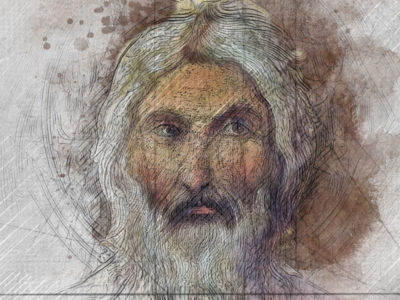NINE LINES IN ISAIAH just made it onto a document I’m creating called “Favorite Bible Verses.”
Here they are:
“When others insult you,
Don’t let it get to you.
When others mistreat you,
Don’t let it beat you.
Those people will disappear
Like cloth with a moth,
Like a ball of wool with a worm.
But I’ll be here to save forever,
And for all generations to come.”
—Isaiah 51:7-8, Casual English Bible
Prophecy is poetry, mostly
I doubt most Christians know that prophecy is poetry, for the most part.
If they did know, I suspect they’d stop taking it so literally and would start recognizing that the writers are driving with a poetic license.
History or prophecy?
Isaiah 51 was written either as prophecy or as history disguised as prophecy, scholars say. A key argument for “history” is that the writer identifies by the name of the Persian King Cyrus, who lived two centuries after Isaiah. And the writer describes exactly what Cyrus did for the Jews. No other prophecy in the Bible gets that nitty gritty specific.
The poem seemed intended to comfort Jews some time after Babylonian invaders from what is now Iraq wiped their nation off the map in 586 BC.
The poem targeted either:
- Jews deported to what is now Iraq in about 586 BC, or
- Jews returning to the ruins of Jerusalem 50 years later, or more.
So, the abuse the poet talks about was of
- Babylonians terrorizing their captives, or
- neighbors of the Jews back in Israel trying to intimidate them and drive them away. (During the generation while the Jews lived in exile, settlers moved into the vacated Jewish homeland.)
Advice for handling insults today
I imagine the poem reassured Jews 2,500 years ago. But I find it reassuring today.
As a nation, we grew more mean-spirited and insulting toward one another in recent years.
It became hard to miss after the political badmouthing turned vitriolic, jumped the rails of reality, and started beating on people trying to protect them.
We endured a steady, polluting pulse of obscenely hateful words from the mouths of a cabal of angry American political leaders, social media negative influencers, and pretend “newscasters” who skipped the course in the ethics of journalism.
The rub
Hatred has rubbed off on us.
Isaiah said those offensive people will disappear.
Until then, would it be asking too much of them to kindly sit in the corner and be quiet for a few years?
We all need a break. Or more medication. Or for troubled troublemakers to disappear “like a a ball of wool with a worm.”
But there’s always a new generation of trouble.
Still, this has been the generation of trouble for the history books.
The hope Isaiah offered to the people of his day is the hope that remains with us:
“I’ll be here to save forever,
And for all generations to come.“
In the meantime,
“When we talk, we’ll tell the truth and we’ll say it with love. We want to grow spiritually in every way, in an effort to be like Christ,” Ephesians 4:15, (Casual English Bible).
Casual English Bible
Steve’s Bible-background YouTube Channel
More feature articles
Bible Gateway


Leave a Reply